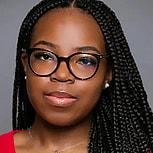If you’re anything like me, you were very single this Valentine’s Day. Now before you pout your lips and release that subconscious “awwww…” currently on the tip of your tongue, hear this: I’m OK. I, like many other singles, did not wallow in self-pity yesterday. If anything, I was basking in self-love and love from friends and family.

Research has shown that almost 40% of adults in the U.S. are single, with nearly half being uninterested in dating — and who can blame them? Between the popularization of “toxic love” and the prejudice Black daters experience on dating apps, it’s safe to say dating in 2023 is not for the faint of heart.
That being said, the narrative around singlehood has undoubtedly changed over the years, coincidentally, as marriage rates have declined. Nowadays, being single does not automatically categorize a person as a “depressed cat lady” or as hyper-independent as Gabrielle Union’s character in the 2003 film “Deliver Us from Eva” (IYKYK).
“We’ve been going along with society’s story about single people, and there have been structural incentives to kind of make single people the punching bag,” said Geoff MacDonald, a psychology professor at the University of Toronto who specializes in relationship research, to TIME magazine.
While there is no denying the joy of being in a healthy, committed relationship, that status does not inherently take away from the joy single people experience. Many authors have explored the beauty of singlehood, like Elyakim Kislev, who wrote “Happy Singlehood” and “What a Time to Be Alone: The Slumflower’s Guide to Why You Are Already Enough” by Chidera Eggerue. Kislev describes singles as individuals who “cherish freedom, independence, and even creativity and nonconformity more than others.”
Like the famous saying, “you can’t love others until you love yourself,” research shows most singles prioritize physical and mental health and cherish the alone time and ability to focus on personal goals. Similarly, people without partners are likelier to pour into relationships with family and friends. So that being said, singles are far less lonely than society perceives them to be.
“Some people just don’t want to organize their lives around a romantic partner,” Bella DePaulo, a 69-year-old happily single social psychologist and author, told TIME. “They want to take advantage of the freedom to curate lives of their own.”
“It would be a shame to be 80 years old and look back on this time where I was just upset about being single and not making the most of the life I have now,” said Eggerue, per Refinery29.
However, whether you’re single in your early twenties or late forties, misconceptions about singles’ satisfaction with their relationship status remain. MacDonald’s research concluded that satisfaction with being single increases with age. These stats support the recent redefining of “auntie status” within the Black community. As described by the Atlantic, the term “auntie” has a nuanced meaning, but ultimately, the term celebrates middle-aged/older Black women who possess a free, unfettered energy.
“They claim their own identities. They do not require a husband or children to be valued, though they may have both,” reported the Atlantic. “The depiction, for me, feels freeing precisely because, according to cultural norms, Black women of a certain age are not expected to prioritize their own interests, desires, and well-being. “Aunties” don’t play that.”
I say all this to say, it’s OK! It’s OK if you’re single and not actively searching for a partner. It’s OK if you’re still healing. It’s OK to be single and seek love that feels right. Whether you’re intentionally or unintentionally single, your relationship status may feel complicated at times, and that’s just fine.
“Try and put your happiness first as many times as possible,” advised Eggerue. “Try to make yourself as close to the center of your world as possible because it’s what you deserve, and no [relationship] should be able to come before your happiness.”

Haniyah Philogene is a multimedia storyteller and Lifestyle reporter covering all things culture. With a passion for digital media, she goes above and beyond to find new ways to tell and share stories.
TheGrio is FREE on your TV via Apple TV, Amazon Fire, Roku, and Android TV. TheGrio’s Black Podcast Network is free too. Download theGrio mobile apps today! Listen to ‘Writing Black‘ with Maiysha Kai.

